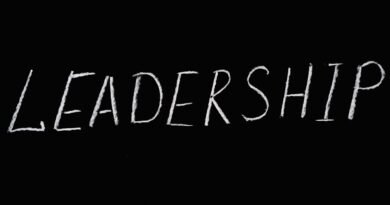ADOLESCENCE
ADOLESCENCE
Shehnaj Parveen Sarma
Adolescence is the transitional stage from childhood to adulthood that occurs between ages 13 and 19 also called the beautiful years of teens . Very often the physical and psychological changes that take place in adolescence often start earlier, during the preteen between 9-12 years .
Researchers suggest adolescence undergo three primary developmental stages of adolescence and young adulthood –early adolescence, middle adolescence, and late adolescence or young adulthood.
Adolescence is a time for growth spurts and puberty changes. An adolescent may grow several inches in several months followed by a period of very slow growth, then have another growth spurt.
Adolescent behaviour:
Spending more time with friends and less time with family is very normal teenage behavior. It means that your teen is shifting his or her circle of support to peers and away from parents and siblings. While it might feel hurtful, this is a necessary stage of development and should be expected and even encouraged maintaining good rapport and communication between children and parents.
Early adolescence is little carefree but mid and late adolescence is generally full of challenges .
ROLE OF SCHOOLS
Researchers have tried to define psychosocial dysfunction in many ways, but confusion remains. However, understanding regarding psychosocial dysfunction concludes that it is a state of emotional and behavior disorders synonymous with internalizing and externalizing conditions, respectively. Most common disorders include depression and anxiety and delinquency, aggression, educational difficulties, and truancy (the action of staying away from school without good reason, absenteeism) Adolescence is mainly affected by home and school environments. Schools play a vital role in the development of an adolescent, as they spend much time attending school, engaging in extracurricular activities, and completing scholastic work at home. School represents an institution that contributes to the overall educational and socialization processes, critical in the personality development of an adolescent.
NEEDS AND PROBLEMS OF ADOLESCENCE
- Needs for security : The adolescent need emotional, social and economic.
- Need for Love : Affection or love is one of the most basic psychological.
- Need for approval : There is a carving for recognition in adolescents.
- Need for freedom and independence : Adolescence is a time when the
individual is striving to wean himself away from the control of parents and elders. He want the right to give expression to his feelings, emotions and ideas. He feels annoyed and unpleasant when restriction is imposed on him. - Peer pressure is one of the biggest challenges an adolescent has to face it is the responsibility of the parents to guide them and make them achieve a resourceful state.
- Need and desire of self expression and expression of potentialities
Adjustment difficulties with parents:
Adolescents have a strong urge for freedom and independence. But often it is obstructed by parental oppositions. In Indian context, parental opposition may extend to such areas as choices of friends, choice of education, recreational interests, dress, life-style, our of going from and coming to the home, mode of behaviour etc. The conflict between parental norms of behaviour and peer group relationships often lead to friction in the relationship and adolescents find it difficult to adjust to the needs and demands of parents. Failure to adjust with the parents may result in revolting against parents and authority.
How do you solve adolescent problems?
It follows these steps:
- Identify the problem. Put the problem into words that make it workable.
- Think about why it’s a problem. Find out what’s important for your child and explain what’s important from your perspective. .
- Brainstorm possible solutions.
- Evaluate the solutions.
- Put the solution into action.
- Evaluate the outcome.
listen and think calmly.
consider options and respect other people’s opinions and needs.
find constructive solutions, and sometimes work towards compromises.
A parent-child relationship which is very stressful or troubled during the preadolescent years can be a strong signal that professional help may be needed. Parents’ investment of time and energy in the child’s early years can prevent small problems of childhood from becoming larger problems of adolescence.
It is of outmost importance for parents to trust their children, build rapport with them , consider their opinions and support their decision making process with healthy and positive outputs and treat them as respectful adults in the making.
Parenting can be the most rewarding work of adult life. Nothing brings more joy and pride than a happy, productive, and loving child for that the foundation has to be laid from the child’s infancy period.
Though often it is described as the most turbulent phase of our lives but it is not true , if understood well this could be the most happiest phase of our lives where we start understanding who we are and what is our place in this world

Shehnaj Parveen Sarma from Guwahati practicing NLP counsellor and Life Coach and has a Facebook Page called Mind Triggers related to counselling.




